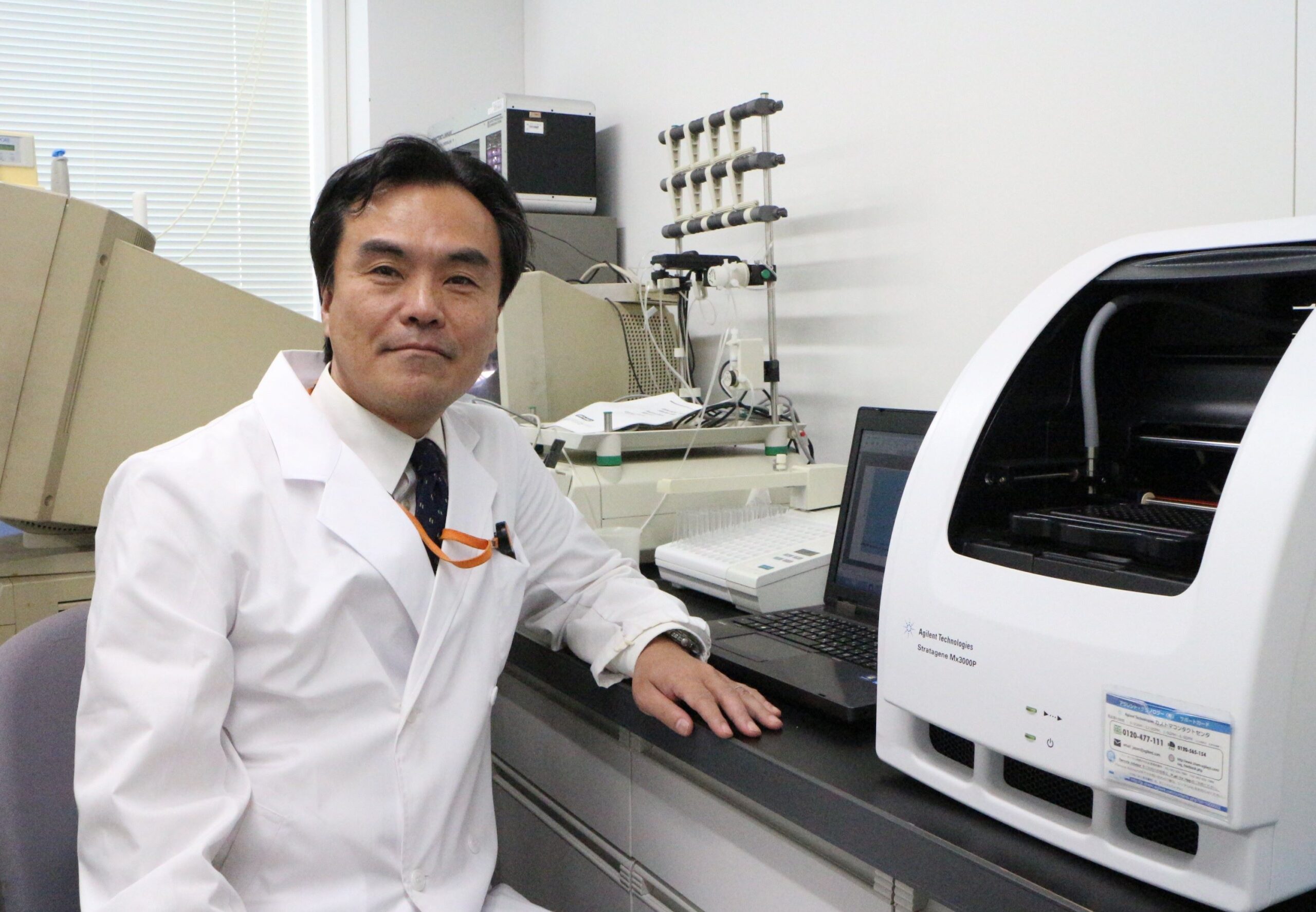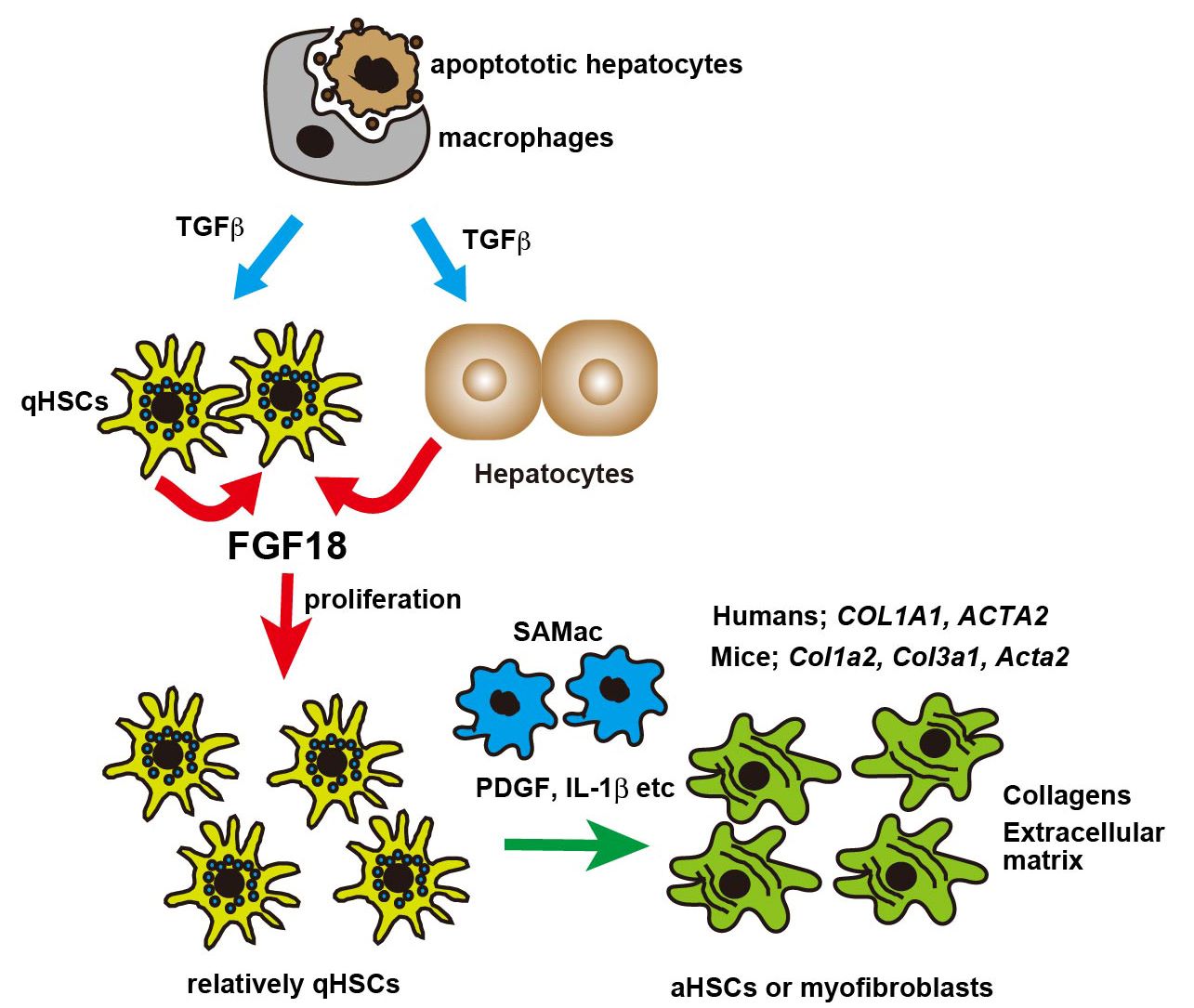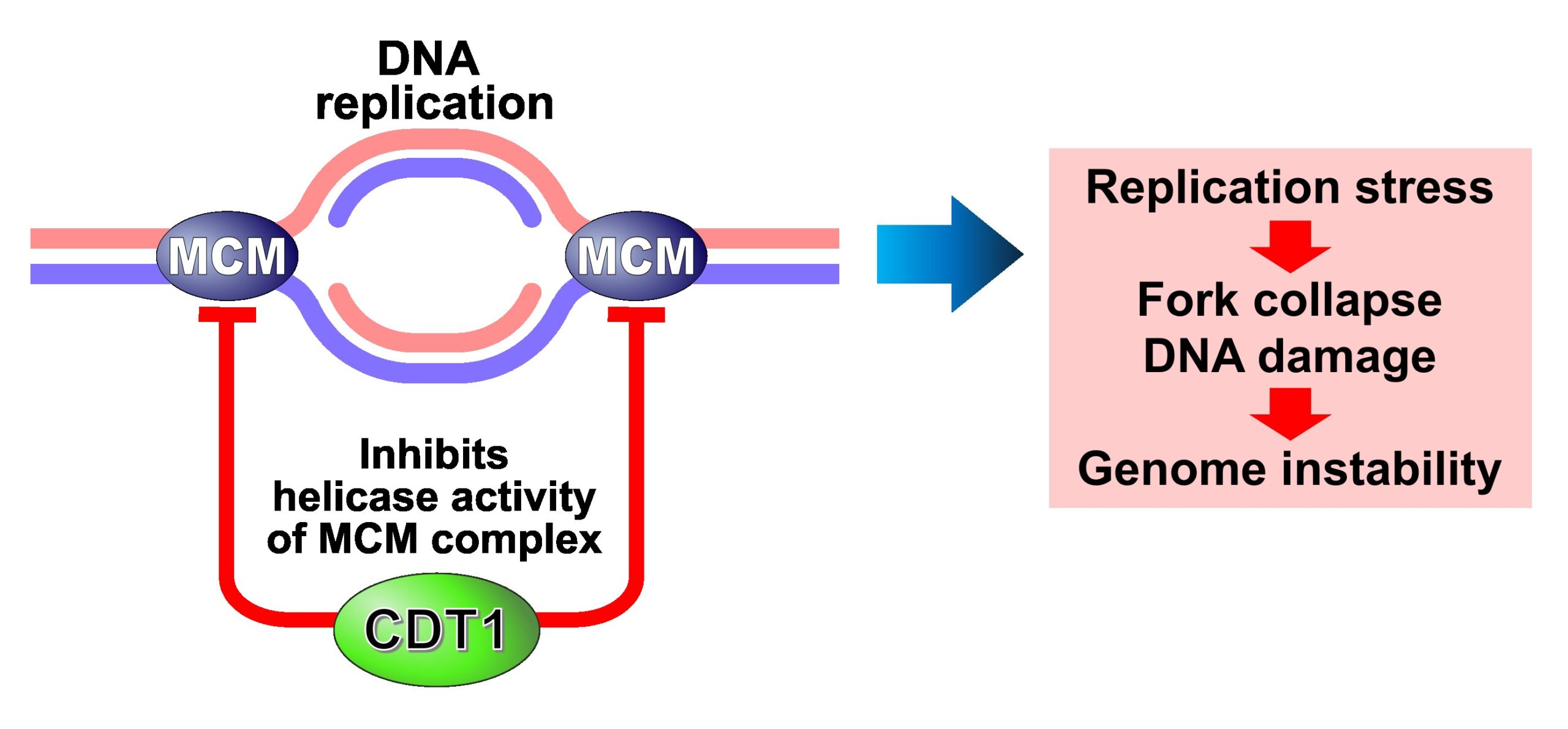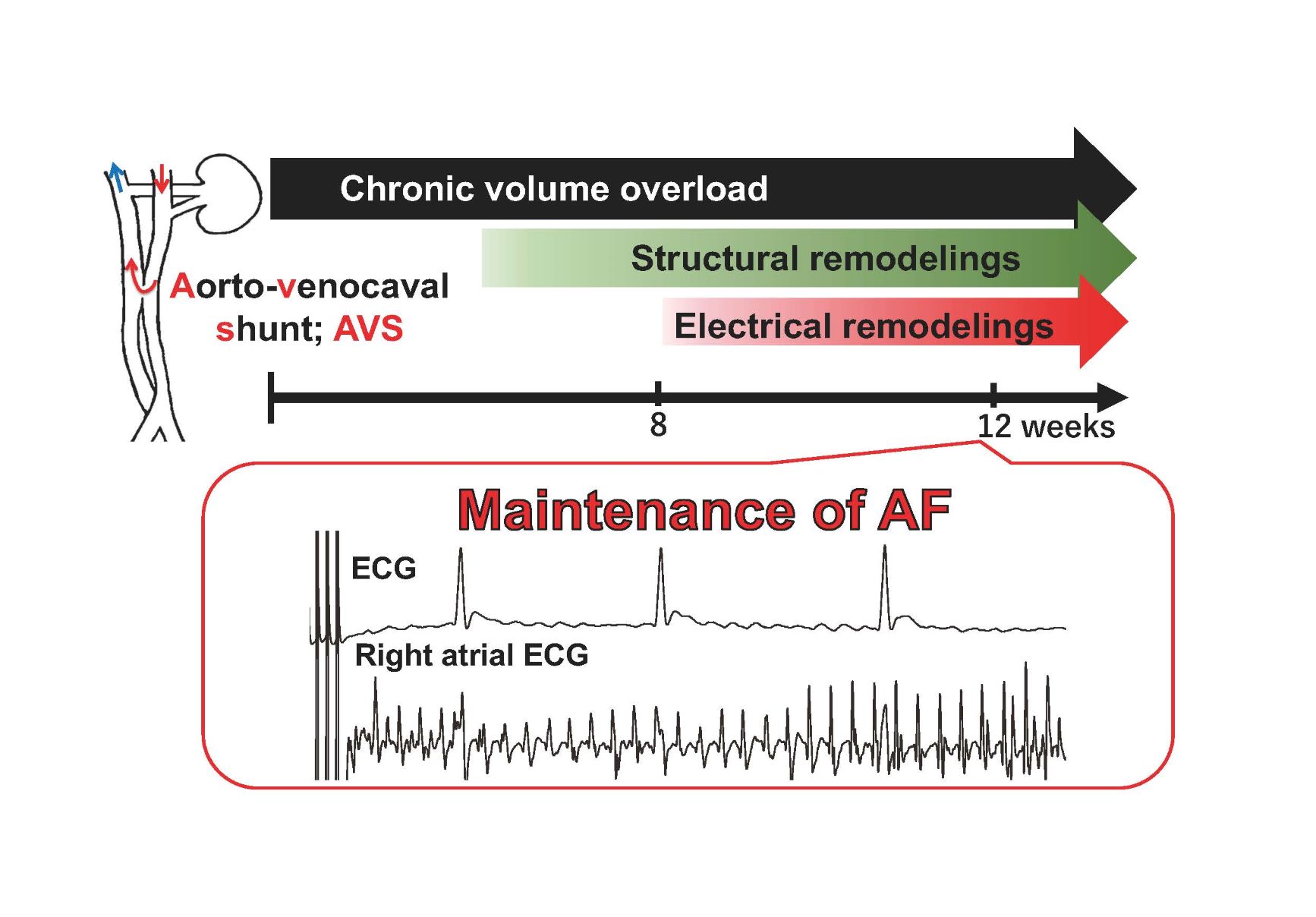Fibroblast Growth Factor 18 stimulates the proliferation of hepatic stellate cells, thereby inducing liver fibrosis.






A model for FGF18-induced liver fibrosis proposed in this research. In response to various injuries, transforming growth factor-β (TGFβ) is released from different types of cells, such as macrophages engulfing apoptotic hepatocytes. Then, TGFβ induces the production of FGF18 in hepatic stellate cells (HSCs) and hepatocytes. FGF18 then stimulates the proliferation of HSCs. Proliferating HSCs further respond to stimuli derived from scar-associated macrophages and produce collagens and extracellular matrix, thereby promoting liver fibrosis. aHSCs, activated HSCs; PDGF, platelet-derived growth factor; qHSCs, quiescent HSCs; SAMacs, scar-associated macrophages.
Credit: Hiroyasu Nakano
The findings propose a potential therapeutic target for controlling liver fibrosis in chronic hepatitis by focusing on inhibiting or modulating FGF18. This discovery could pave the way for novel approaches to treating liver fibrosis, offering hope for patients with chronic hepatitis.
The results of the research were published in the scientific journal Nature Communications on October 9, 2023.
RELATED NEWS-Pharmaceutical Sciences:
Undergraduate Programs
– Medicine
– Pharmaceutical Sciences
– Science
– Nursing
– Health Science
Graduate Programs
–Medicine
–Pharmaceutical Sciences
–Science
–Nursing
RESEARCH
– News
– Guidelines & Policies
– Support Offices
– Facilities
– Security Export Control
Non-Degree Programs
– Clinical Elective Program
– International Physician Observership Program



.jpg)
